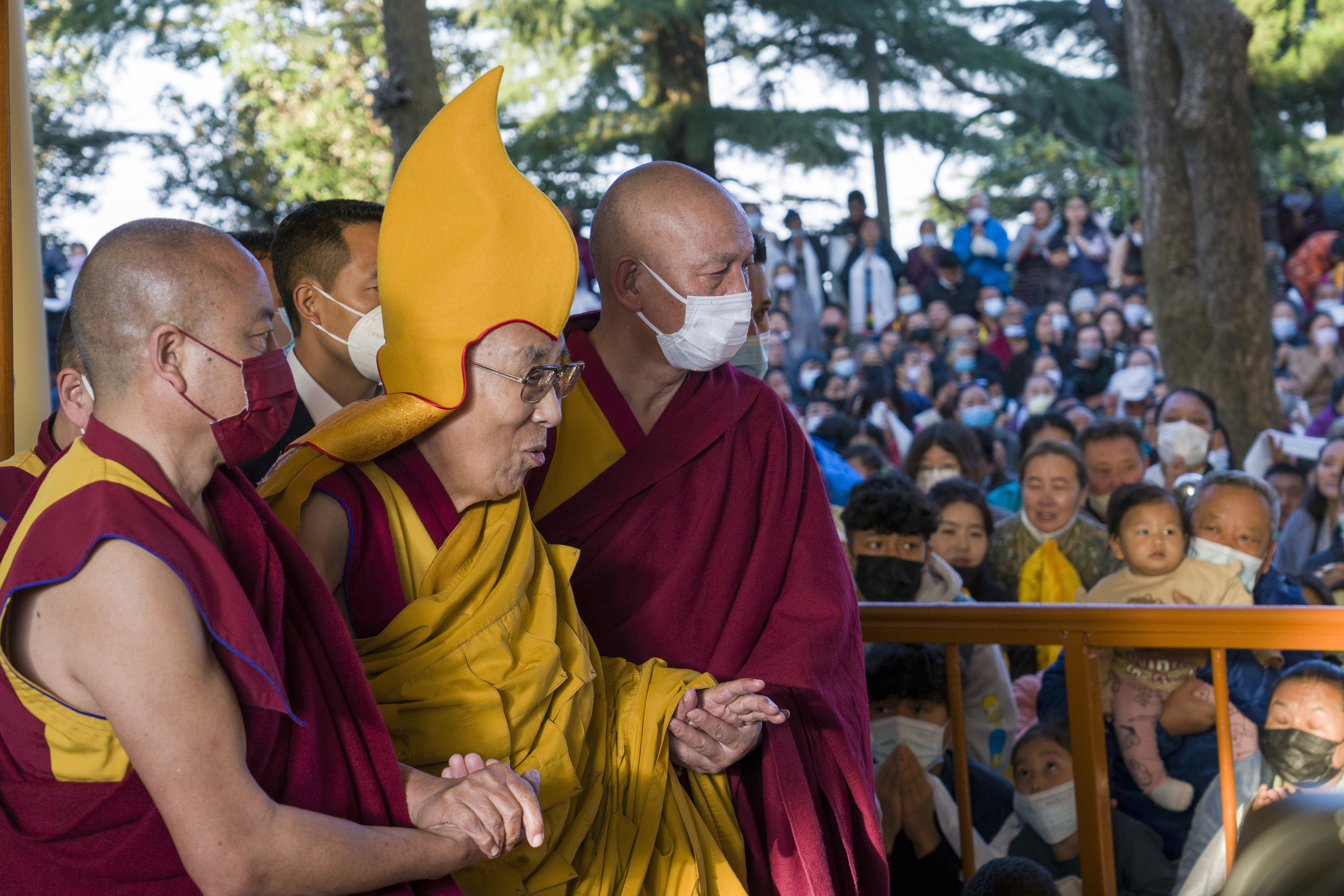DHARAMSALA, India (AP) — Tibetan spiritual leader the Dalai Lama apologized Monday after a video showing him kissing a child on the lips triggered criticism.
A statement posted on his official website said the 87-year-old leader regretted the incident and wished to “apologize to the boy and his family, as well as his many friends across the world, for the hurt his words may have caused.”
The incident occurred at a public gathering in February at the Tsuglagkhang temple in Dharamsala, where the exiled leader lives. He was taking questions from the audience when the boy asked if he could hug him.
The Dalai Lama invited the boy up toward the platform he was seated on. In the video, he gestured to his cheek, after which the child kissed him before giving him a hug.
The Dalai Lama then asked the boy to kiss him on the lips and stuck out his tongue. “And suck my tongue,” the Dalai Lama can be heard saying as the boy sticks out his own tongue and leans in, prompting laughter from the audience.
The footage triggered a backlash online with social media users condemning his behavior as inappropriate and disturbing.
SNAP, the national advocacy group for victims of clergy abuse, said they were “horrified” by the Dalai Lama’s actions. “Our primary concern is with the innocent boy who was the subject of this disgusting request by a revered spiritual figure,” the group said in a statement.
Sticking out one’s tongue was often used as a greeting according to ancient Tibetan culture, but is not commonly seen anymore.
“His Holiness often teases people he meets in an innocent and playful way, even in public and before cameras,” the statement from the Dalai Lama read.
The Dalai Lama has made the hillside town of Dharmsala his headquarters since fleeing from Tibet after a failed uprising against Chinese rule in 1959. India considers Tibet to be part of China, though it hosts Tibetan exiles.





